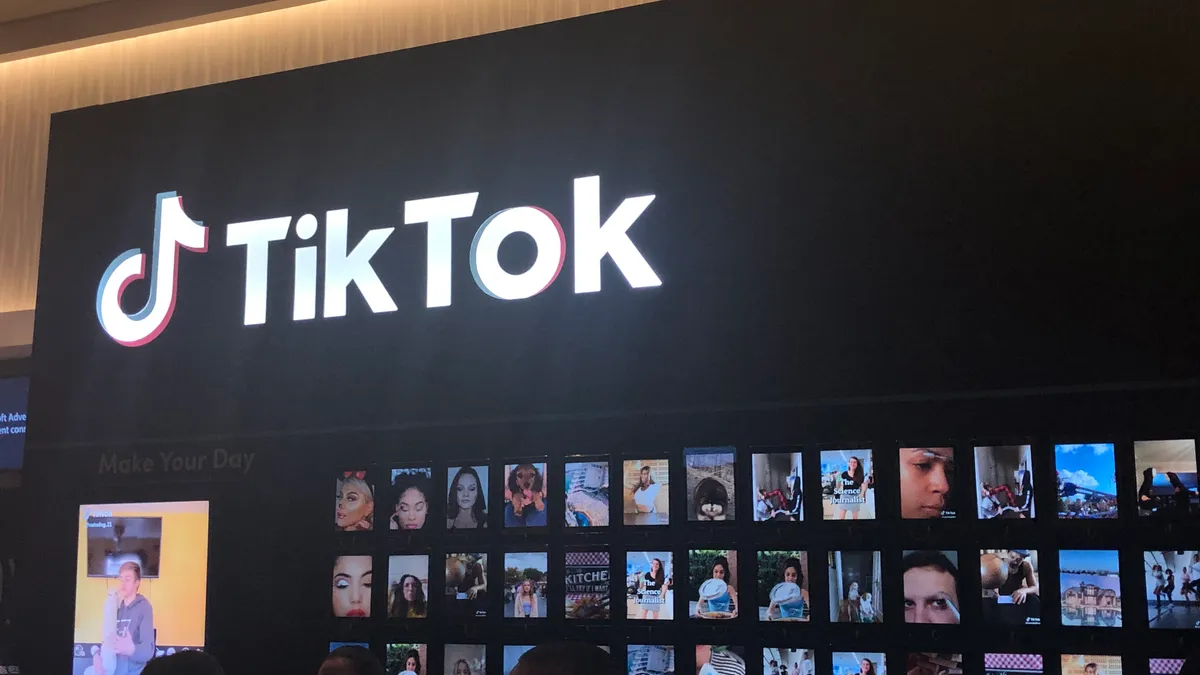For the last few years, social video has been the domain of major platforms, with Google (YouTube), Facebook (Instagram, Watch, Live) and Snap (Snapchat) battling for dominance and the attention of fickle young audiences like Gen Z. But while those platforms were making content deals and rolling out copycat features, another player entered the fray and disrupted the mobile marketing landscape organically: TikTok.
First launched in 2016 as Douyin in China by parent company ByteDance, TikTok started building steam in international markets in 2017. Things ramped up later that year, when ByteDance acquired lip-sync video app Musical.ly, which had become popular in the U.S. and Europe, but struggled to monetize its content with ads and sponsorships. After the $1 billion acquisition, ByteDance eventually merged Musical.ly with TikTok in August 2018, and it has been off to the races since then.
Campaign successes
At the beginning of the year, TikTok began rolling out ad units and ramping up its efforts to attract more brand dollars. A five-second ad for GrubHub appeared on the platform in January followed by in-feed native video ads the next month. Soon after, the company began pitching takeovers, hashtag challenges and a variety of lenses and filters. Major marketers quickly jumped onboard and spent the spring, summer and fall experimenting with the platform — often successfully.
Uniqlo became the first brand to run a multimarket TikTok campaign in June, and the next month, Chipotle demonstrated the power of leveraging TikTok's hashtag challenges. Across six days, the burrito purveyor urged fans to participate in a #GuacDance challenge, receiving 250,000 video submissions and 430 million video starts — staggering engagement numbers for any platform. Walmart soon followed with a hashtag challenge of its own, while E.l.f. Cosmetics became the first branded hashtag challenge on the platform to feature an original song.
"You're not promoting the product — you're promoting content that's funny and entertaining."

Alessandro Bogliari
Influencer Marketing Factory, CEO
"For marketers now, there's an opportunity to do something new, different and fresh on TikTok, not the typical hard sell," Alessandro Bogliari, CEO of the Influencer Marketing Factory, told Mobile Marketer. "You're not promoting the product — you're promoting content that's funny and entertaining."
Perhaps unsurprisingly, TikTok also has a fertile — and growing — influencer marketing landscape. Sony Pictures used the platform's influencers to promote the film "Escape Room," and beauty brands Marc Anthony True Professional and Hero Cosmetics saw viral success with influencer campaigns. In advance of its record-breaking hashtag challenge, Chipotle had notched a win with an influencer-led challenge, generating 110,00 video submissions and 104 million video starts in six days.
Rapid growth
Viral campaigns will likely continue to crop up on TikTok as it continues a meteoric growth trajectory. After the initial merger that formed the service, TikTok saw its audience balloon from 100 million to 130 million in just three months, as worldwide downloads increased 20% and U.S. downloads rose 25% from the prior three-month period. In the process, TikTok overtook YouTube, Instagram, Snapchat and Facebook in a ranking of U.S. downloads from Apple's App Store and Google Play.
Gen Z users have been drawn to TikTok rather than Instagram and Facebook for two reasons — the community and the way content is created, Bogliari said. The community, in particular, stands in contrast to the polished influencer-driven world of Instagram.
"You can be weird, you can be whoever you want, and the community will accept you for who you are," Bogliari explained. Plus, it's easy to create content, no matter how weird.
"Even if they make no sense for older generations, they make sense for Gen Z," Bogliari said.
The largest sign of TikTok's threat to social media stalwarts has perhaps been Lasso, Facebook's attempt to copy the video-sharing app. Facebook has introduced copycat and clone products for its core platform and Instagram before in attempts to stunt the growth of competitors like Snapchat, but some analysts believe the social giant is fundamentally underestimating TikTok's appeal to users and threat to its own business.
With its rapid growth, engaged user base of young consumers and functionality that encourages virality, TikTok is well suited to further disrupt the mobile marketing landscape.



 Read more
Read more










